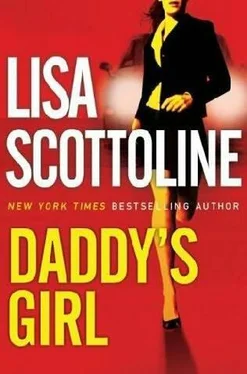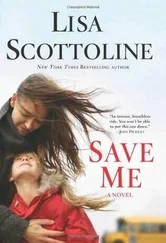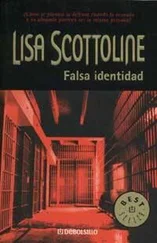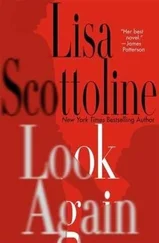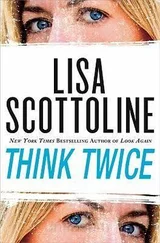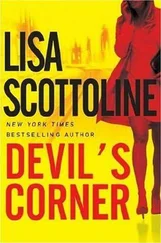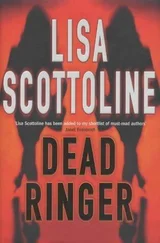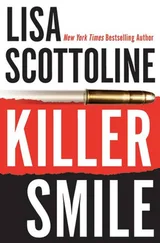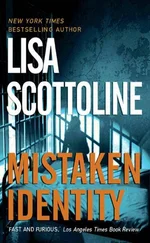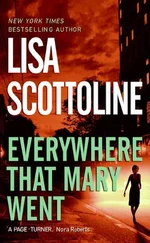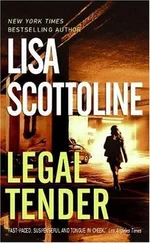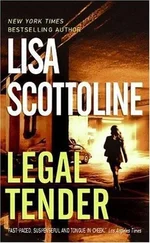"Nat?" Barb was walking over.
Floor. Four? Nat squatted down, reached for the rock with the black four, and wedged it out of place.
"What are you doing?" Barb asked, but by then Nat was looking in astonishment at the large circle where the white rock had been, clearly outlined by a ring of earth. Lying in the center of the circle was a large Ziploc bag, which held a yellow manila envelope.
Nat felt her heart start to hammer.
"What's that?" Barb asked, amazed.
"I don't know, but it was under the four!'
"What?"
"Remember what Ron said? 'It's under the floor.' He must have said, 'the four'. I must have misheard him."
"I should have thought of that!" Barb's hand flew to her mouth, and Nat retrieved the plastic bag, brushed off the wet dirt, and read the name on the outside envelope, written in ballpoint, a man's hand. It said, Barb. Touched, Nat rose and handed it to her.
"It's for you. This must be what he wanted you to have."
Barb accepted the plastic bag as her boys played in the background, making motor noises with their mouths. She pulled aside the blue plastic zipper on the bag, then extracted the envelope, and opened it. She took out five or six typed pages, with other white papers stapled to the back. On top was a shorter piece of blue paper, a handwritten note that Barb read to herself, then looked up with tears in her eyes.
"He says, 'I love you,'" she said finally, her eyes welling and her lower lip trembling. "He says, 'I love you and our boys with all my heart.'"
Nat blinked back tears of her own, remembering that night, when Barb had been so upset that his last words hadn't been about her. And after all this time, they had been. As tragic as it was, Nat had a sense that they had come full circle.
"Then he says, 'If you're reading this, it means I'm gone.'" Barb's voice broke, but she continued reading aloud, hiding her tears from the kids. '"I would've put it in the garage but I wanted it as far away from you and the boys as possible, in case anyone came looking for it. Turn the rest of these papers over to the police as soon as you can, and they can catch these men. Let them take it from there. Stay safe, and know that I love you and our boys, even now.'"
Nat swallowed hard, then suppressed her emotion at the words. Saunders had been killed for what he knew, but in the end he had triumphed, putting the proof under a rock. It must have been what they were searching for that day, after the funeral. Not drugs or money. Evidence.
"I'm so happy to have his note," Barb said, wiping her eyes. "Thank you so much for finding it. It's the greatest gift you could have given me." She detached the note from the papers, then handed them, the envelope, and the Ziploc bag back to Nat. "Please take these. Give them to the police."
"You sure?" Nat accepted the pages.
"My head's already starting to hurt, and I don't want the kids to see me upset."
"I'll make sure you get a copy. You can read them when you're ready."
"Great, thanks." Barb shielded her wet eyes and held the note close. "This is all that matters to me. That my husband loved me and his sons. That we were his last thought."
"I understand," Nat said, just as Barb's lower lip buckled.
"I'm going inside. Can you watch the kids a sec?"
"Sure." Nat's heart went out to her. "Can I help you in?"
"No, please, keep an eye on the kids." Barb turned away and went to the house, her head down. "Be right back, boys. Stay outta the street. Mom's got a little headache."
"You gotta my-grate, Mommy?" the little one called out from his bike, and Barb blew him a kiss.
"Hope not, tiger. Be right back. Hold on with two hands!"
Nat watched her go, making sure Barb reached the door, and then she turned to the pages that Ron Saunders had written.
And what she read brought her to her knees.
Nat sat parked along the side of the road and slumped in the drivers seat, behind the steering wheel. A pale afternoon sun shone in a faint blue sky, and old, dry leaves spun frantically across the road in a gust of wind, the last frantic dance of winter. The scene was as bucolic as ever, but she couldn't appreciate it anymore. Not after what she'd read in Saunders's pages. She'd begged off on dinner in favor of delivering them to the police, and both Barb and Jennifer had understood.
But Nat had lied to them. She hadn't gone to the police. She was still sitting in the Volvo, parked at a crossroads. The road to the right led to the state police barracks. The road to the left led home. She wasn't sure yet which one to take. Ron Saunders's pages, a narrative based on overheard conversations and amateur sleuthing, described the conspiracy to help Williams escape exactly as Nat had figured it out. Except for one thing she'd missed.
She read the first paragraph again, but it kept coming out the same way:
On April 28, last year, I was on duty and I took Angus Holt to meet with Richard Williams in the courtesy-hold area. I thought Williams wanted to ask Holt to be his lawyer. Holt thought that, too, because he said so. We were having a rat problem at that time, so I had to put poison everywhere, including the heating ducts. I overheard Williams ask Holt to set up an escape. Williams said he had "one of his boys," Mark Parrat, who would handle paying Holt to get Williams out before his trial. Holt asked why Williams was asking him to help, and Williams answered because the warden would let him meet with a lawyer without anybody suspecting anything, but he couldn't go meeting with C.O.s and he didn't know which C.O.s were "safe" to approach.
Nat rubbed her face. She couldn't believe it. Angus hadn't mentioned that he'd met Williams, either the day that she first went with him to the prison or any day thereafter, even more recently. But Saunders had had no reason to make it up. The rest of the pages contained details of the finances and other plans, which Saunders had overheard and recorded. So much of the narrative was right, but could this part be wrong? Angus could never have been involved with Graf and Machik. She'd seen them fight with her own eyes. And if he was really part of the conspiracy, why would Parrat have hit him with the black pickup?
Nat reread the next paragraph, which picked up the narrative:
Holt said no, but Williams kept upping the money. They agreed on three million dollars up front and a million more when Williams escaped. Holt said the construction might "present some opportunity" to get Williams out. Holt said he knew all the C.O.s and he knew which C.O. to "hire" for the job, maybe Graf. Holt also said they would need somebody higher up, too, maybe Machik. Holt said he would take care of it and get back to Williams.
Nat felt sick to her stomach. It was awful even to contemplate. Angus had dedicated his life to law that served the public interest. He would never have done such a thing, and he didn't care about money. His apartment was as no-frills as his office, his wardrobe was nonexistent, and his biggest asset was the Beetle. She had never met anybody so uninterested in material things. Could she have been so wrong about him? She knew him. She loved him.
She read the last paragraph that pertained to Angus:
After that, Holt met two more times with Williams, but I couldn't listen in on them the way I could on Graf and Machik. I am attaching copies of the visitor logs to show that Holt visited Williams three times, and the logs prove that Holt was there. It's true I don't have any proof that Holt followed through. I leave that to you guys. I do think they are covering it up, big-time, because last week I checked the log and the pages about Holt were gone. It's a loose-leaf notebook, so there was no sign they were ripped out, but I knew they were there before, and the copies in here show that.
Читать дальше
